Know Your Harness
STYLES OF HARNESSES
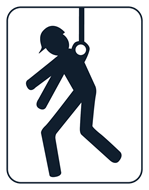
(Class A)
For fall arrest only, features only a dorsal D-Ring on the back.
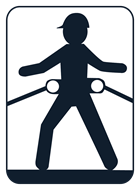
(Class P)
These harnesses have D-Rings located at the hips for use with positionings lanyards to allow for hands-free working in vertical structure applications.
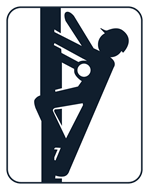
(Class L)
For climbing applications and attachment to fixed ladder safety systems, these harnesses include a frontal attachment point.

(Class E)
D-rings on the shoulders are used for lifting or lowering a user, typically in confined space or rescue applications.
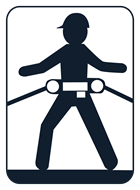
Retrieval
(Class P)
Construction harnesses feature belts and additional attachment points for a variety of applications. The belt allows users to carry tools and additional padding improves user comfort.
FEATURES ON WERNER HARNESSES
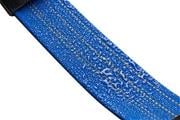
1. Webbing
The webbing is the skeleton of the harness and must have the strength and durability to satisfy fall protection needs in demanding job environments.
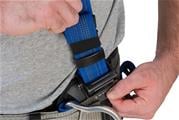
2. Adjustment Locations
For optimal comfort and performance in a fall event, a harness must be properly adjusted and fit on the user. All areas of the harness should be snug, but not overly tight. Most harnesses have adjustments for the torso/shoulder straps, chest straps and leg straps.
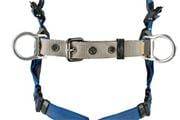
3. Alternate Attachment Hardware
Different harnesses have additional D-Rings for specific applications: near the hips, on the chest, or on the shoulders.
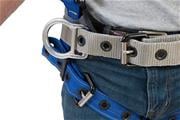
4. Leg Straps
Leg strap fasteners come in different styles, including
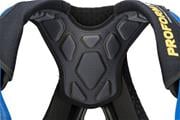
5. Back / Shoulder Pad with Dorsal Back D-Ring
Cushioning on the back and shoulders helps distribute pressure, improving users' comfort.
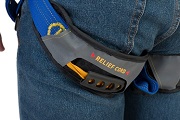
6. Sub-Pelvic Strap
When properly positioned, the sub-pelvic straps help to distribute force and weight during and after a fall.
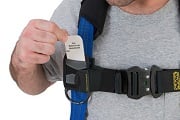
7. Labels
Harness labels include important product information and provide a place to record inspection data. Labels must be protected from wear and damage; legibility is critical.

8. Impact Indicators
Any harness exposed to a fall should be removed from service. These indicators provide instant evidence whether or not a fall has occurred.
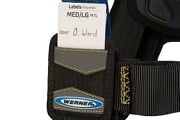
9. Lanyard Keepers
The lanyard keeper provides a safe place to park a lanyard not in use and also reduces the likelihood of tripping on or snagging the lanyard.
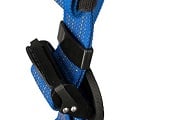
10. Strap Keepers
When properly adjusted and fit to a user, a harness may have extra webbing strap hanging out of the various buckles. Simple strap keepers allow the user to organize and store this extra strap to improve comfort and prevent snagging.
HARNESS SIZING

